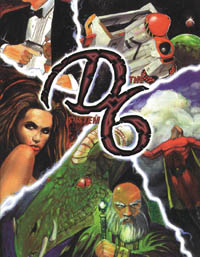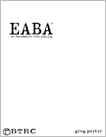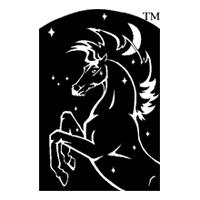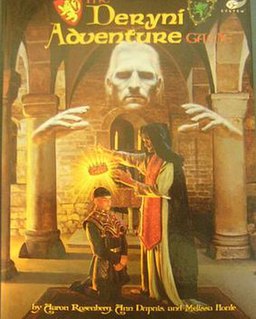
Bunnies & Burrows (B&B) is a role-playing game (RPG) inspired by the 1972 novel Watership Down. Published by Fantasy Games Unlimited in 1976, the game centered on intelligent rabbits. It introduced several innovations to role-playing game design, being the first game to allow players to have non-humanoid roles, and the first to have detailed martial arts and skill systems. Fantasy Games Unlimited published a similar second edition in 1982. Frog God Games published a revised third edition in 2019 from the original authors. The game was also modified and published by Steve Jackson Games as an official GURPS supplement in 1992.

The Generic Universal RolePlaying System, or GURPS, is a tabletop role-playing game system designed to allow for play in any game setting. It was created by Steve Jackson Games and first published in 1986 at a time when most such systems were story- or genre-specific.
Open gaming is a movement within the tabletop role-playing game (RPG) industry with superficial similarities to the open source software movement. The key aspect is that copyright holders license their works under public copyright licenses that permit others to make copies or create derivative works of the game.

Fate is a generic role-playing game system based on the Fudge gaming system. It has no fixed setting, traits, or genre and is customizable. It is designed to offer minimal obstruction to role-playing by assuming players want to make fewer dice rolls.

The Serenity Role Playing Game is a science fiction role-playing game released in 2005 and set in the universe of the movie Serenity. It was produced by Margaret Weis Productions, Ltd, and its mechanics were the first iteration of the Cortex System. It won an Origins Award for best RPG in 2005 and Margaret Weis' license came to an end on January 31, 2011.

Aria: Canticle of the Monomyth, also known as Aria Roleplaying, is a role-playing game published by Last Unicorn Games in 1994.

Savage Worlds is a generic role-playing game written by Shane Lacy Hensley and published by Pinnacle Entertainment Group. The game emphasizes speed of play and reduced preparation over realism or detail. The game received the 2003 Origin Gamers' Choice Award for best role-playing game.

The D6 System is a role-playing game system published by West End Games (WEG) and licensees. While the system is primarily intended for pen-and-paper role-playing games, variations of the system have also been used in live action role-playing games and miniature battle games. The system is named after the 6-sided die, which is used in every roll required by the system.

An attribute is a piece of data that describes to what extent a fictional character in a role-playing game possesses a specific natural, in-born characteristic common to all characters in the game. That piece of data is usually an abstract number or, in some cases, a set of dice. Some games use different terms to refer to an attribute, such as statistic, (primary) characteristic or ability. A number of role-playing games like Fate do not use attributes at all.

Ghostbusters is a comedy role-playing game designed by Sandy Petersen, Lynn Willis and Greg Stafford and published by West End Games in 1986. It is based on the 1984 film Ghostbusters.

The End All Be All game system, commonly known as EABA and pronounced "ee-buh", is a role-playing game system from Blacksburg Tactical Research Center (BTRC). It is a generic gaming system designed to adapt to any imaginary gaming environment. It was created by Greg Porter in 2003. The game cites the Hero System, GURPS and Call of Cthulhu as influences in its development.
Steffan O'Sullivan is the author of several role-playing game books.

GURPS Bestiary is a source book for the GURPS role-playing game system containing information and statistics of animals. It also contains information animal player character templates, and tips for fitting animals into adventures. The first edition was published in 1988.
Now most commonly referred to as "Cortex Classic," the Cortex System is a generic RPG system based on the Sovereign Stone role-playing game system,, and was developed by Margaret Weis Productions, Ltd for the Serenity Role Playing Game. It was subsequently used for their licensed Battlestar Galactica and Supernatural RPGs, and brought out as a stand-alone system in the Cortex System Role Playing Game book. Serenity, using the Cortex System, was the 2005 Origins Award Gamer's Choice Role Playing Game of the Year.

Grey Ghost Press was founded in 1994 by Ann Dupuis after spending time working on the Fudge RPG system by Steffan O'Sullivan. She initially created the company as Wild Mule Games in 1994, incorporated her company the following year as Ghostdancer Press, and then renamed the company to Grey Ghost Press.
Ann Dupuis is the owner of Grey Ghost Press and designer of a number of GURPS supplements.

Written by fantasy novelist Aaron S. Rosenberg, the Deryni Adventure Game is a role-playing game that is based in the Deryni novels created by Katherine Kurtz.
The Cortex Plus System is a toolkit RPG system that evolved from Margaret Weis Productions, Ltd's Cortex System. It has been used for four published games and one published preview to date, and the design principles are in the Cortex Plus Hacker's Guide, a book of advice in how to create new games using Cortex Plus, and list of new games produced via Kickstarter. According to the Hacker's Guide there are three basic 'flavors' of Cortex Plus; Action, Drama, and Heroic.

Gatecrasher is a light-hearted science fantasy role-playing game published by Grey Ghost Press in 1996.
The Cortex System is a collection of related roleplaying games. Its most recent iteration, Cortex Prime, was designed by Cam Banks and published by Fandom Tabletop. Prior versions appeared in the licensed roleplaying games published by Margaret Weis Productions, where it was used as the house system. Cortex is an adaptable game system focusing on characterization and story development.
















